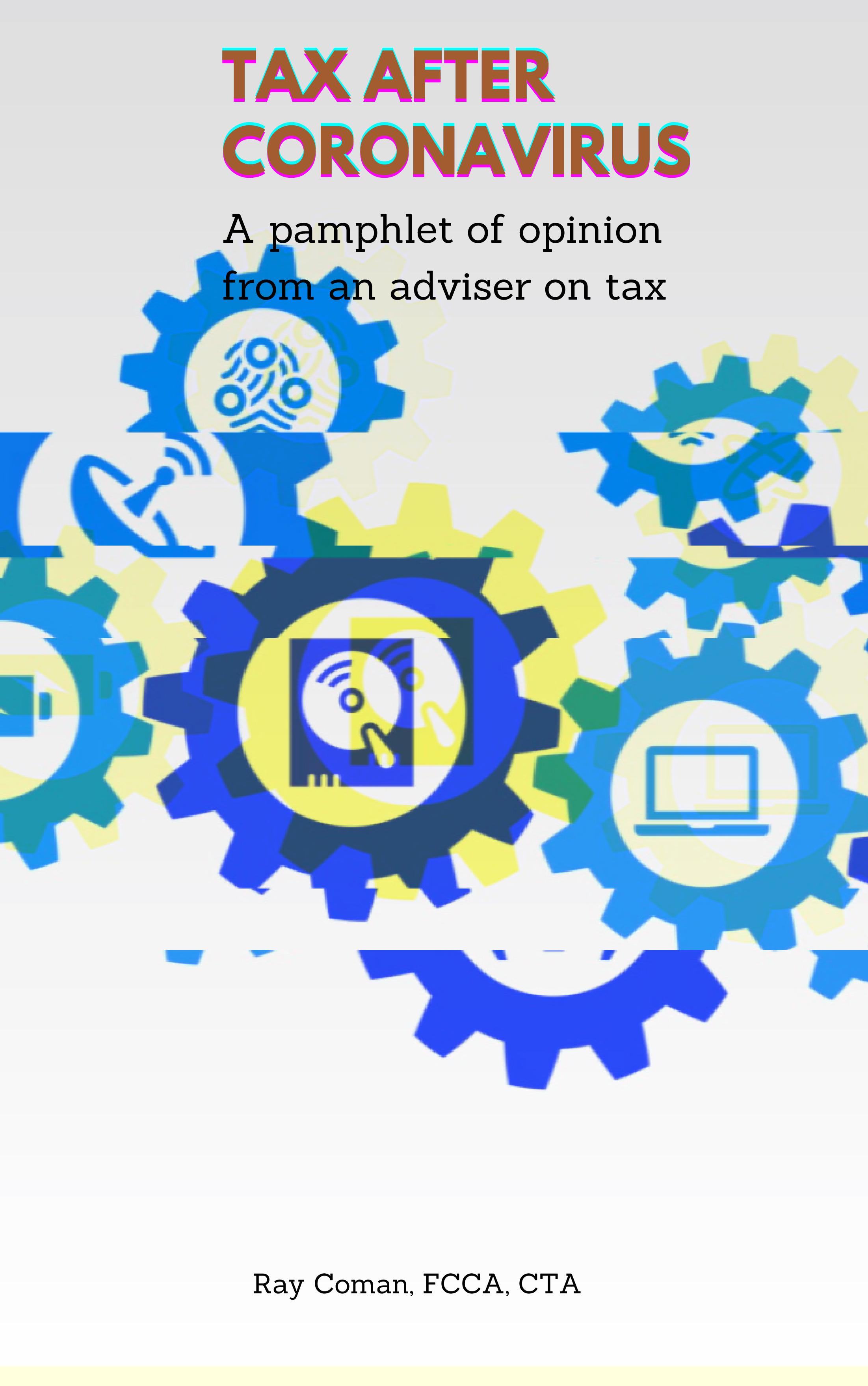2021 Budget
Written by Ray Coman
 In his opening remarks, Mr Sunak put into numbers the sheer cost of supporting the economy through the pandemic. He explained that borrowing had been at its highest since World War 2. This places the UK in a predicament because a mere 1% increase in interest rates would add £25 billion to the cost of debt. Fiscal measures aim to stimulate the economy through its recovery phase and afterward buffer finances to shore up British debt.
In his opening remarks, Mr Sunak put into numbers the sheer cost of supporting the economy through the pandemic. He explained that borrowing had been at its highest since World War 2. This places the UK in a predicament because a mere 1% increase in interest rates would add £25 billion to the cost of debt. Fiscal measures aim to stimulate the economy through its recovery phase and afterward buffer finances to shore up British debt.
Among rumours and fears of shock tax rises especially to capital gains tax, the 2021 Budget has been one of the more keenly awaited. One year into lockdown, and with public borrowing at a record high, the pressure is on fiscal policy makers to start calling in revenue. Too early and tax rises could set back the much-needed economic recovery. Financials have helped ease the predicament. Britain steals the march in its vaccination program, has been helped by a surging London stock market index and pound nearing a three-year high.
Loss carry back window to be lengthen from one to three years
Income tax thresholds left practically unchanged
A fifth self-employment income support scheme scheduled
Uplift in universal credit, minimum wage and apprenticeship grants
Continuation of loans to business
Business rate holiday to continue
Reduced rate VAT for the hospitality sector be prolonged
Capital allowance super-deduction introduced
Capital gains tax regime largely untouched
Contactless payment limit to double
Corporation tax to rise
The rate of corporation tax will increase from 19% to 25% on 1 April 2023.
At 19%, corporation tax is the lowest of G7 nations, and with the Tory manifesto pledge to freeze rates on income tax, national insurance and VAT, it was placed as prime candidate for revenue raising. Rishi Sunak restated the pledge not to raise income tax, NI or VAT.
Even at 25%, corporation tax remains the lowest in the G7 nations. Other nations, also faced with the challenge of the costs of covid, are likely to respond with similar tax rises which could help to keep the British company tax rate competitive, in spite of the hike announced today.
Businesses with profits of less than £50,000 will continue to enjoy the lower rate of 19%. Once profits exceed £50,000 a tapering will be introduced. Only business with profits of £250,000 or greater taxed at full rate
The change of rate from 19% to 25% marks a significant U-turn on George Osborne and David Cameron’s policy. Globalisation facilitates the ability of business to route profits through lower tax jurisdictions. The trend about increasing tax on individuals responded to this fiscal challenge. Consequently, the ability of the corporation tax hike to deliver on its revenue objective could be overstated.
From April 2023, many businesses will prefer the tax implications of remaining unincorporated. The more tax efficient route for self-employed will likely become sole trader or, where two or more individuals or working together, partnership of LLP.
Loss carry back window to be lengthen from one to three years
Currently a loss can only be carried back one year for corporation tax purposes. One exception is when a company ceases. Effective April 2021, companies will be able to carry back up to £2 million to the preceding three years. The measure will be particularly valuable to companies that have suffered losses as a result of Covid.
Income tax thresholds left practically unchanged
Recent Budgets have seen successive rises in the threshold at which individuals start paying tax. However, today’s Budget confirmed almost no change in personal allowance. Inflation is widely expected to creep into the system as a consequence of extravagant government debt purchase and therefore a freeze on rates and allowances could give cause to a taxpayer loss in real terms. The process by which the buying power of money reduces but tax rates remain unchanged is referred to as fiscal drag. It is often highlighted in the context of the UK inheritance tax nil rate band.
The personal allowance will increase to £12,570 from 2021/22 and then remain fixed until April 2026. The higher rate tax threshold will nudge up to £50,270 and then also remain frozen until the next Parliament.
The following thresholds will not change until 2026:
- Inheritance tax nil rate band
- Pension lifetime allowance of £1,073,100
- Capital gains tax annual exemption.
The VAT registration threshold will be fixed at £85,000 until March 2022. Mr Sunak was quick to point out that threshold was apparently twice as generous as the EU average.
No change was announced the ISA limit, which will remain of £20,000 per person for 2021/22.
Extension to furlough
The Coronavirus Job Retention Scheme grant is to be extended until the end of September 2021. This postponement enlarges the scheme well beyond the June expiry previously announced.
Employees will continue to be entitled to receive 80% of pay for hours not worked until 30th September 2021. There will be no change in the scheme until the end of June. For the month of July, however, employers will be required to contribute 10% of salary, and for August and September, 20% of salary for hours not worked. The government would therefore pay for the remaining 60% for the final two months of the scheme.
A fifth self-employment income support scheme scheduled
As previously announced, a forth SEISS grant, will be available to cover lost profits up to the end of April. The grant will be based on 80% of average profits for the three months, subject to a cap of £7,500.
A fifth and final grant will be open to applications from May which will have a value equal to three months’ of average profits. Self-employed people with a turnover which has fallen 30% continue to receive full grant. For other business owners, the grant will be equal to 30% of profits.
The SEISS had not previously been available to the newly self employed. However, announced in today’s statement a self-employed person who has filed a 2019-20 by midnight yesterday will be eligible for the fifth grant.
Uplift in universal credit, minimum wage and apprenticeship grants
To support low income households, the weekly Universal Credit increase of £20 will continue for a further six months. To match this increase a one-off payment of £500 will be available to claimants of the Working Tax Credit. Neither Universal Credit nor Working Tax Credit is subject to tax.
The Chancellor announced a national living wage increase to £8.91. The incentive to business for hiring an apprentice will now run until September 2021 and apply to apprentices of any age. The incentive payment will be increased to £3,000.
Restart Grants launched
The Government roadmap has set out that non-essential retail business will be allowed to open from 12th April 2021. Affected businesses will be eligible for grants up to £6k per premises.
Hospitality, accommodation, personal care and gym, entertainment, tourism and performing arts venues will be required to stay closed. A reopening date of 17th May has been pencilled in. Affected businesses in the hospitality sector will be eligible for grants of up to £18,000 to help restart.
The Restart Grant for Film & TV Production will also be extended and a £300 million fund will be set up to support theatres.
Continuation of loans to business
Bounce-back loan and CBILs come to an end. On the expiry of the current lending programme, a new loan will be available of between £325k up to £10 million through to the end of the year. The government guarantees lenders up to 80% of the value of these loans.
Business rate holiday to continue
A business rate holiday is currently enjoyed in the hospitality, leisure and retail industries. This business rate holiday will continue until the end of June 2021. Business rates will be discounted up to 2/3rds until the end of the year.
Reduced rate VAT for the hospitality sector be prolonged
For business in the hospitality and leisure sectors, the 5% reduced rate of VAT will extended until six months until end of September. From 1 October 2021, an interim rate of 12.5% will apply. Business eligible to enjoy the reduced rate charged to their customers will not be required to return to the standard rate of 20% until April 2022.
Stamp duty holiday prolonged
The £500,000 stamp duty land tax threshold will end on 30th June, rather than the previously published expiry date of 31 March 2021. From 1st July to 30th September, the nil tax threshold will be lowered to £250k. It will only be from 1st October 2021 that the SDLT threshold will return to the pre-covid limit of £125,000.
Mortgage guarantee
The government affirmed its commitment to help the affordability of homes. Lenders offering mortgage of 95% will obtain government guarantees for debt up to £600,000.
Capital allowance super-deduction introduced
The Chancellor set out his plan for an “Investment led recovery.” By way of policy the most significant announcement was a “Super-deduction” from taxable profits for capital expenditure.
For the next two years, a business investing in qualifying plant and machinery, will be entitled to a capital allowance of 130%.
Capital gains tax regime largely untouched
The Budget was silent on capital gains, which should come as a considerable relief. The business asset disposal relief has not been reformed. Company owners seeking to extract accumulated profits as capital gains can still do so, subject to the Targeted Anti Avoidance Conditions.
Contactless payment limit to double
The threshold at which payment can be made by contactless card has been increased from £45 to £100. The limit increase has been enabled by Britain’s exit from the EU.
Other Budget highlights
All alcohol duties frozen for second year in a row.
Planned rise in fuel duty is also scrapped.
Consultation opened on R&D tax relief and enterprise management incentive
VISA reforms to attract highly skilled workers.
Budget 2021 summary
The government’s plan to raise the billions needed to cover for the cost of Covid have been unveiled in today’s Budget. Staggered increases are timed so as not to stall economic recovery.


 In March 2020,
In March 2020,  Coman & Co has published an e-pamphlet which is available through various outlets, but can be downloaded here:
Coman & Co has published an e-pamphlet which is available through various outlets, but can be downloaded here:  Coman & Co has become a Certified Advisor for both Xero and QuickBooks. After successful completion of the online examinations, we can add these two useful competencies to the existing skill set of the firm. Xero and QuickBooks are both market leading and among the top five accountancy software packages in the UK.
Coman & Co has become a Certified Advisor for both Xero and QuickBooks. After successful completion of the online examinations, we can add these two useful competencies to the existing skill set of the firm. Xero and QuickBooks are both market leading and among the top five accountancy software packages in the UK. While we do not have certification, we are also able to handle most accounts preparation queries related to records held in Sage, Freeagent, Kashflow and other bookkeeping products.
While we do not have certification, we are also able to handle most accounts preparation queries related to records held in Sage, Freeagent, Kashflow and other bookkeeping products. On 5th November, the government announced a further extension to the
On 5th November, the government announced a further extension to the